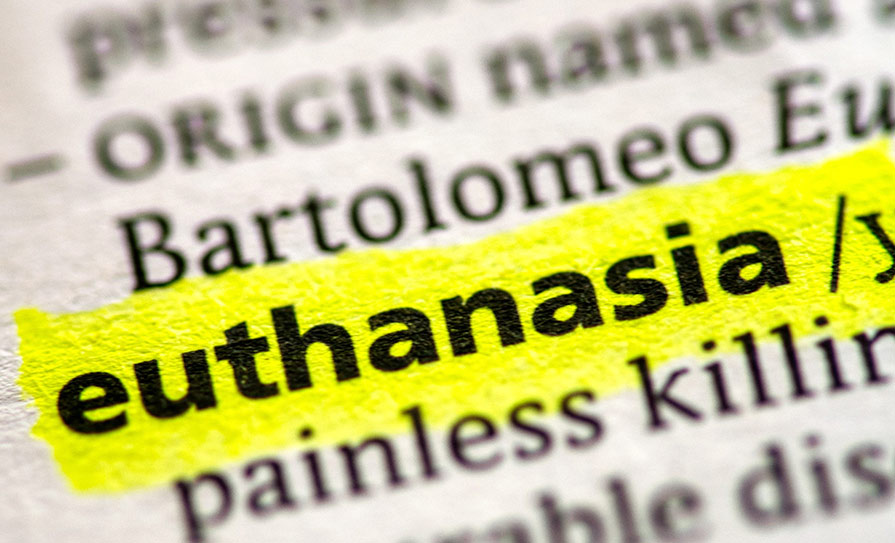
It is hoped the Medical Council will rethink its apparent turn towards legalism in the new ethical guide
Many doctors have not yet realised that the Medical Council has removed the long-standing ethics stricture on euthanasia and assisted suicide in the latest edition of its ethical guide. This raises serious questions about the state of clinical ethics in Irish medicine, signalling a drift towards an impoverished law-based approach to complex ethical issues, a phenomenon known as legalism.
The inclusion of the stricture in previous editions was not due to ignorance of the law on murder and manslaughter by their predecessors. Rather it was based upon awareness of the very major body of peer-reviewed ethics literature on euthanasia and assisted suicide and the practice of euthanasia and assisted suicide in a small minority of jurisdictions where Irish-registered doctors may be practising. The stricture also took into account concerns regarding the actions of doctors such as the late Dr Paddy Leahy, who admitted to performing euthanasia (www.dib.ie/biography/leahy-patrick-joseph-a4739), and the difficulty of prosecution in such cases.
In addition, previous Medical Councils understood the nihilistic negativity of doctors being permitted to kill their patients rather than striving to provide hope, support, treatment, and constant improvements in care. In this they mirrored the recent position paper of the Danish national ethics council. This coherently argued not only the impossibility of establishing proper regulation of euthanasia, but also that the very existence of an offer of euthanasia will decisively change our ideas about old age, the coming of death, quality-of-life, and what it means to take others into account (www.thelocal.dk/20231004/denmarks-ethics-council-advises-against-legalising-euthanasia).
The disturbing lack of ethical insight by the Medical Council was further emphasised by the failure to signal this seismic ethical change in its document, as well as removing the word ‘ethical’ as a basis for values relating to freedom of conscience.
In a bizarre inconsistency, the Council seems to recognise that ethics and law can differ in relation to execution, which is legal in some liberal democracies such as Japan. Appropriately signposted as unethical for medical participation, this distinction between law and ethics has been jettisoned by the Council regarding the much more relevant and timely concern over euthanasia and assisted suicide, including for Irish-registered doctors working in countries where it is a practice.
It is not surprising, therefore, that over 300 senior doctors across a wide spectrum of clinical activity have requested the Council to reinsert the long-standing stricture against euthanasia and assisted suicide.
In a broader sense, clinical ethics has been a relatively neglected aspect of undergraduate and postgraduate medical education in Ireland, despite a very large body of international scholarship and peer-reviewed literature. The causes of the relative neglect are many. For example, while students know that they need to learn anatomy and physiology, they believe themselves to be ethical, a train of thought that persists into professional life. A further reason particular to Ireland was the overdominance of Catholic dogma and influence in moral discourse until relatively recently, which stifled a broader palette of discourse.
The key casualty of lack of formal training in ethics has been ethical inarticulacy among doctors and serious challenges in engaging with complex ethical discourse. One outcome is a retreat to an impoverished legalistic response which, instead of reasoned debate, asks: “What does the law say?”
Law is of its very nature ‘anethical’ (ie, has no particular ethical position) and can be unethical, even in liberal democracies. Until relatively recently homosexuality was illegal in Ireland; and the Royal College of Obstetricians in the UK recently gave ethics advice to its members not to report illegal abortions to the police (www.theguardian.com/world/2024/jan/22/illegal-abortions-prosecutions-uk-police-royal-college).
Ideally, teaching in clinical ethics will arise from a combination of engaged clinicians and academics arising from philosophy and/or theology (http://archive.imj.ie//ViewArticleDetails.aspx?ContentID=3525). Ethics and medical law are distinct academic entities, which may interact with each other, and there is concern in the international literature about combining teaching of both within a single entity. Ethics, in particular, may suffer by dominance of the legal aspect through leadership or faculty predominantly arising from medical law.
Students and doctors in Ireland need to be able to develop fluency in reasoned discourse on the basis of a pluralist society with secular institutions. With increasing international student bodies, we need to prepare graduates for ethical debates for return to societies that may be neither democratic nor secular.
It is hoped that the Medical Council will rethink its apparent turn towards legalism and rekindle the primacy of ethical discourse and broader horizons. With open disclosure now the standard of dealing with concerns in the clinical arena, it is important that the Council does not respond to concerns in a defensive or condescending manner. Rather, it should take these concerns seriously, reconsider its current position, and open the minutes and documentation of the ethics committee to review by practising clinicians with an interest and/or expertise in ethics.
It will be important to reassure the public and profession that the broader wealth of ethical scholarship will be brought to bear and that any relevant conflicts of interest on ethical matters within the Medical Council will have been dealt with professionally and adequately.
Prof Des O’Neill, Consultant Geriatrician. He has been involved in research and teaching on clinical ethics at undergraduate and postgraduate levels





As a physician with multiple sclerosis, I would like to thank Professor O’Neill for signalling the significant (and notably unheralded) changes to the most recent Medical Council Ethics Guide regarding euthanasia. Obviously these changes have significant, real life implications for all doctors, patients, their families & caregivers and the wider society.
Yours etc
Dr Eithne Rooney MB FFARCSI MBA